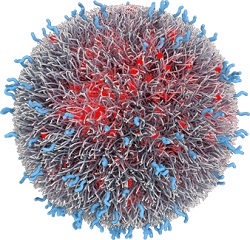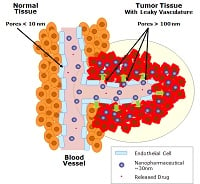 In the drug delivery field, there is perhaps no name more highly regarded than MIT's Robert Langer. The David H. Koch Institute professor is "the most cited engineer in history," having written over 1,200 articles with 815 patents issued and pending around the world.
In the drug delivery field, there is perhaps no name more highly regarded than MIT's Robert Langer. The David H. Koch Institute professor is "the most cited engineer in history," having written over 1,200 articles with 815 patents issued and pending around the world.
FierceDrugDelivery spoke with the prolific drug delivery expert about the field's future, regarding nanotechnology in particular, as well as some of the projects Langer's lab and various business ventures are undertaking currently to make next-gen nanomedicine a reality.
 |
| Robert Langer |
"Drug delivery and nanotechnology in particular are going to be even more important as time goes on and as new molecules are invented," Langer said to FierceDrugDelivery. He cited "molecules of the future" such as miRNA and siRNA as some of the drugs to benefit from delivery concepts being developed now, as well as "molecules that haven't even been invented yet."
"With more and more clinical trials surfacing, I think [nanotechnology] will continue to be very important for new molecules," Langer said. "It's pretty unlimited actually, in terms of the way people are using it."
As for the next frontier? Langer sees a future in drug delivery systems with smarter capabilities and highly specialized technology with precise methods of targeting and release mechanisms. One of the projects he and his fellow researchers have in the works, for instance, is a microchip complete with sensors that tell the system how much to deliver. And this is just the tip of the iceberg.
 |
| Accurin tech from Bind--Courtesy of Bind |
One of Langer's most visible outfits is the recently-public Bind Therapeutics ($BIND), which collected $70.5 million in its IPO in September. The Cambridge, MA, company developed nano-sized delivery vehicles called Accurins for cancer designed to target cancer and deliver drugs with minimal side effects. Langer said the focus there is to get through several mid-stage trials and work with its big-name partners Amgen ($AMGN), Pfizer ($PFE) and AstraZeneca ($AZN) to bring the cancer tech to market.
But Langer is an entrepreneur through and through, with his hands in several up-and-coming businesses in the field, not to mention extensive work at his MIT-based Langer Labs. One of these smaller companies he mentioned with particular enthusiasm is Cerulean, a nanopharma company with a focus on delivering cancer drugs--its main platform targets tumors through large pores in the blood vessels, keeping healthy cells intact due to their size. Then there's Kala Pharmaceuticals, a company focusing on drug delivery to the eye with mucosal penetrating particles--"very exciting work in eye delivery," Langer touts. His Selecta Biosciences works with nanotech to deliver vaccines and immunotherapies.
 |
| Cerulean's tumor-penetrating nanotech--Courtesy of Cerulean |
The list goes on, but one thing is clear: The technology being developed at Langer Labs is penetrating the premarket arena from many angles, and with tremendous success so far.
Despite the achievements he's seen at the business level, it's clear that Langer's passion lies in the research arena, pushing the field forward on multiple fronts. Currently, the lab has "a big collaboration" with the National Institutes of Health "looking at nanoparticles in cardiology," he said, as well as further grants from the National Cancer Institute. In the earlier stages, he and his fellow researchers are looking at delivery in neuroscience, injecting nanomeds directly into the brain.
"Nanotechnology has come pretty far with some first-generation systems going to products," Langer said. "There are some successful cases, but overall, the greatest advances are yet to come." -- Michael Gibney (email | Twitter)